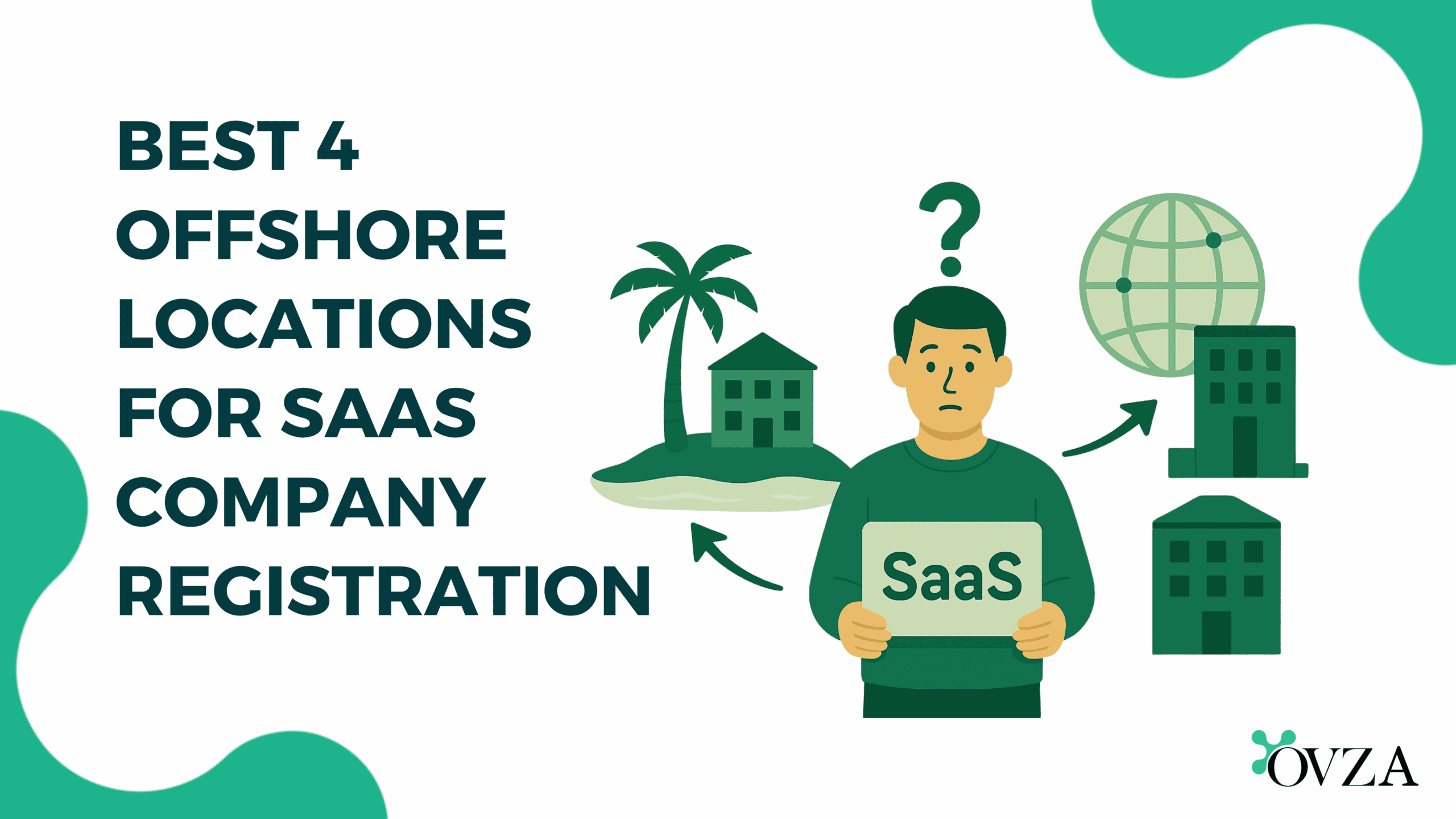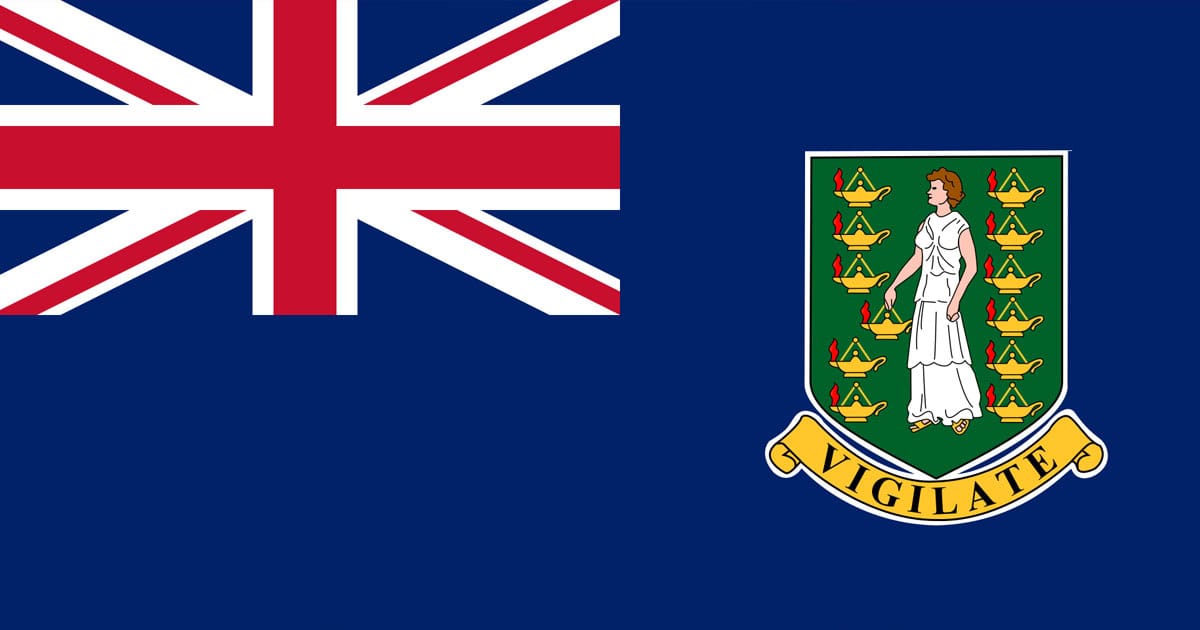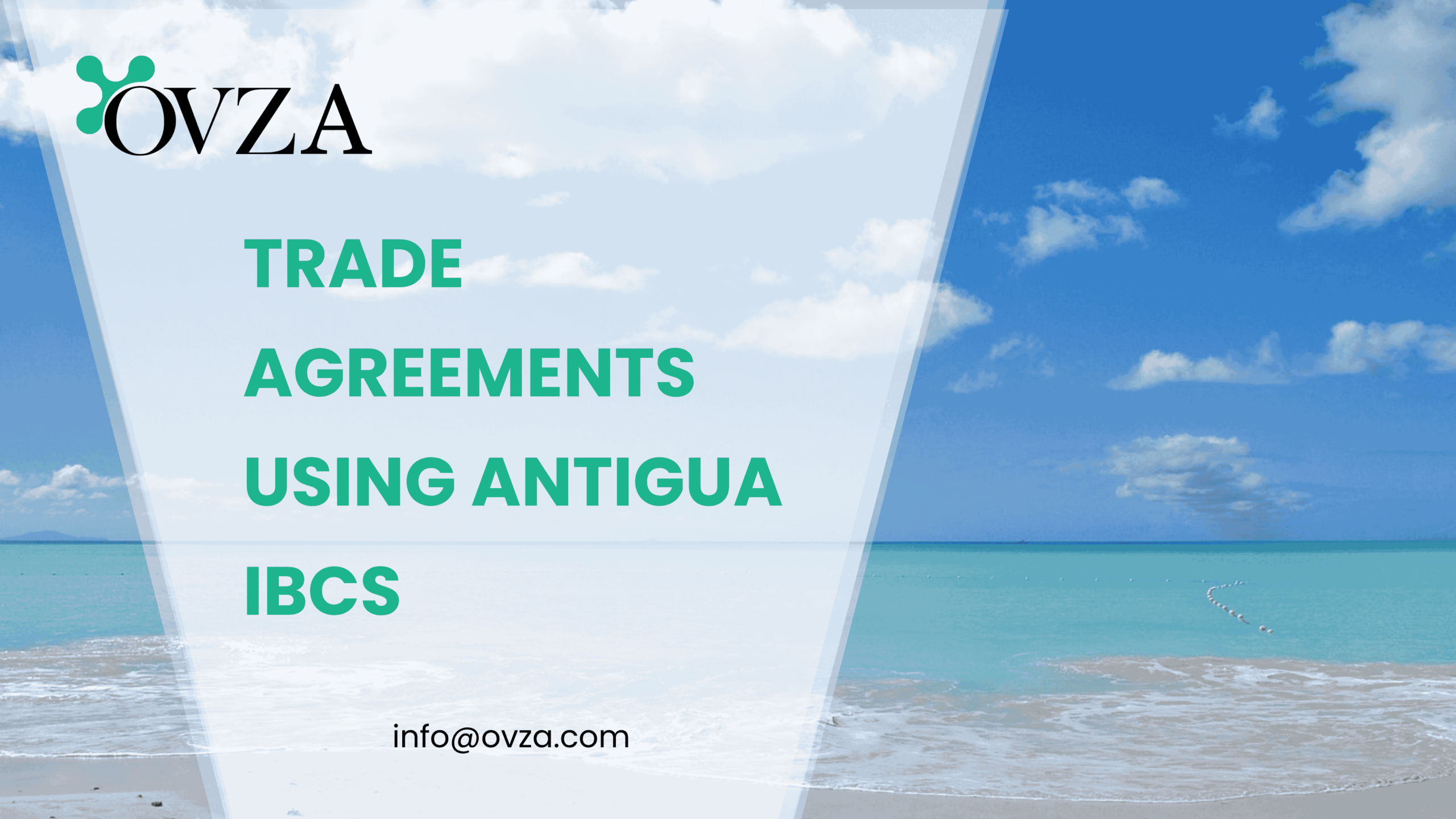Best 4 Offshore Jurisdictions for SaaS Company Registration helps reduce taxes, protect IP, and simplify compliance for global software businesses. SaaS enterprises, by their nature, operate without physical borders, relying on cloud infrastructure, subscription billing, and intellectual property licensing across multiple jurisdictions. This has led legal professionals and corporate planners to explore offshore incorporation options that provide tax neutrality, enforceable governance, and minimal compliance friction. Among the most favorable jurisdictions for offshore SaaS structuring are Saint Lucia, Antigua and Barbuda, the British Virgin Islands, and Seychelles. Each offers a unique legal environment that caters to the operational and contractual needs of software companies, including IP protection, user agreement enforceability, and scalability under international compliance norms.
1.Saint Lucia
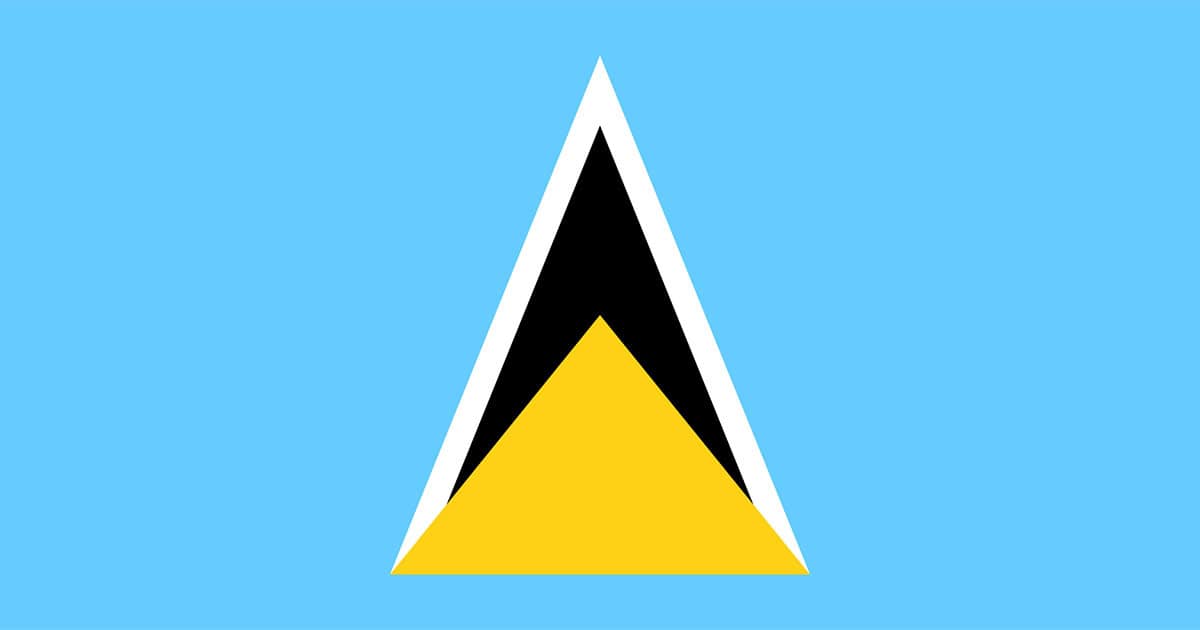
Saint Lucia offers one of the most adaptable legal regimes for offshore SaaS companies through its International Business Companies Act, most recently amended in 2021. The statute enables the formation of international business companies (IBCs) that are exempt from local income tax, capital gains tax, and withholding tax on foreign-source income. This makes Saint Lucia particularly effective for subscription-based SaaS models that earn revenue from customers outside the jurisdiction.
Importantly, Saint Lucia does not impose requirements for maintaining a local office or hiring local staff, provided the company does not carry on business with residents. This structural neutrality aligns with the SaaS sector’s virtualized model, where intellectual property and cloud infrastructure are typically hosted outside the country of incorporation. The jurisdiction is also compliant with OECD transparency rules and has passed economic substance regulations, although passive IP-holding entities or non-core digital operations are generally outside the scope of such rules.
SaaS providers selecting Saint Lucia benefit from both its favorable legal framework and geopolitical stability. The country is not listed on the EU’s list of non-cooperative jurisdictions and maintains a clean profile in global compliance ratings. Furthermore, local enforcement of shareholder rights, company resolutions, and IP holding structures is facilitated by Saint Lucia’s mixed civil-common law tradition.
2.Antigua and Barbuda
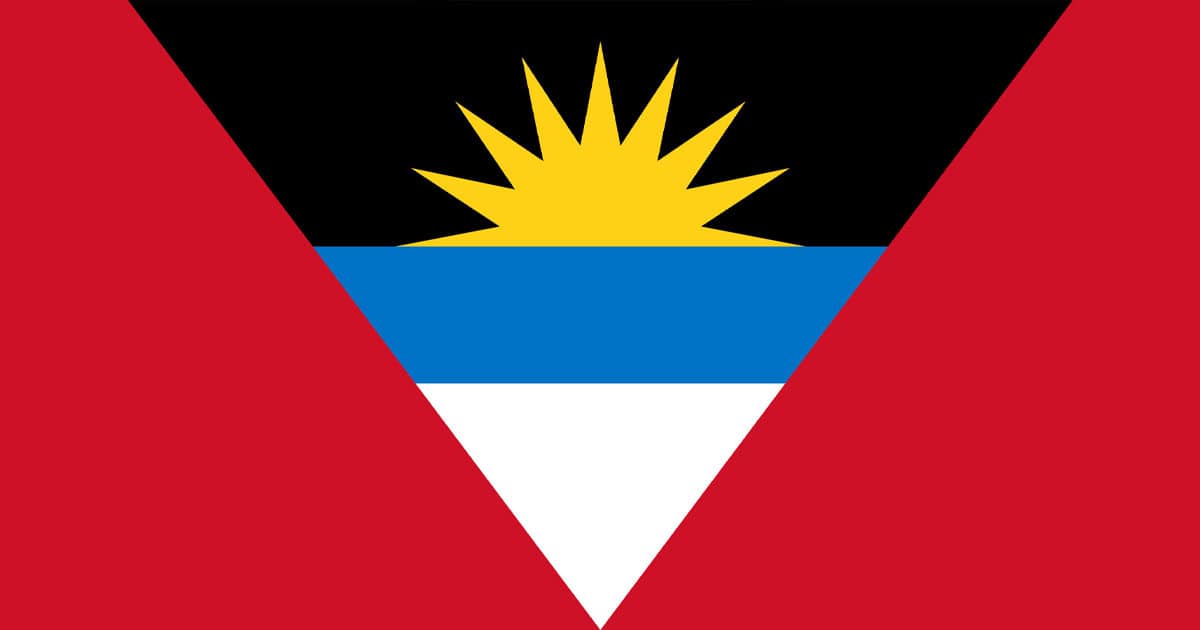
Antigua and Barbuda is another Caribbean jurisdiction with strong legal infrastructure for offshore software incorporation. Governed under the International Business Corporations Act (Cap. 222), the regime enables formation of entities that are not liable for tax on foreign income or royalties. The legal environment supports full foreign ownership and does not require board members or shareholders to be residents, making it ideal for software companies whose operations span multiple countries.
What distinguishes Antigua further is its dual offering of corporate neutrality and personal asset mobility. SaaS founders and executives often pursue citizenship by investment programs offered by Antigua, allowing legal relocation while retaining control of offshore assets through corporate vehicles. Although the citizenship element is not essential to SaaS incorporation, its alignment with business mobility trends gives Antigua a competitive edge in the broader offshore structuring context.
Antigua is also home to a number of licensed registered agents, corporate service providers, and banks that understand the SaaS revenue model. It remains outside major international blacklists and is a member of the OECD Global Forum. The jurisdiction’s favorable treatment of IP licensing, combined with the lack of exchange controls or repatriation restrictions, allows SaaS platforms to license source code, deploy cloud architecture, and monetize subscriptions globally.
3.British Virgin Islands
The British Virgin Islands (BVI) continues to be a premier jurisdiction for offshore SaaS incorporation, particularly where legal certainty and contractual enforceability are paramount. BVI’s Business Companies Act, 2004, as amended, provides a well-established legal framework for international entities, allowing full exemption from local taxation on foreign-earned income, dividends, royalties, and gains. This makes it particularly suitable for SaaS companies operating cross-border platforms that generate subscription revenue from non-resident users.
The BVI’s commercial courts have developed a recognized body of case law governing shareholder rights, contract enforcement, and cross-border dispute resolution, supported by adherence to common law principles. These legal characteristics are of particular importance in the SaaS context, where intellectual property licensing agreements, user service contracts, and software distribution terms must be enforceable across jurisdictions.
Unlike other offshore locations that impose economic substance requirements on certain types of companies, the BVI maintains a delineated Economic Substance (Companies and Limited Partnerships) Act, 2018 that explicitly excludes holding companies with non-relevant activities from compliance obligations. A SaaS company that merely licenses its software or bills remote clients through a digital platform would typically not trigger any substance compliance requirements.
Further, the BVI has become a jurisdiction of choice for holding software IP, particularly in cases where companies are preparing for investment rounds or M&A activity. Its companies are widely accepted by international investors and financial institutions, and its legal framework accommodates flexible corporate governance structures, including single-member directorships and the use of nominee arrangements.
The jurisdiction also features prominently in the offshore legal ecosystem for digital businesses, given its judicial predictability and reputation as a business-friendly jurisdiction. These attributes support BVI’s continued relevance for software founders seeking a neutral, efficient, and internationally respected legal base for SaaS operations.
4,Seychelles
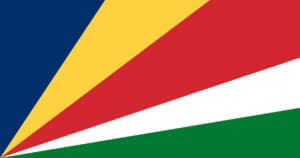
Seychelles offers a distinct legal proposition for SaaS company incorporation, combining favorable tax treatment with a strong emphasis on privacy and confidentiality. The International Business Companies Act, 2016 (as amended) allows for the formation of offshore entities with zero tax on foreign-source income, no restrictions on repatriation of profits, and no obligation to maintain a local presence. This is particularly relevant for SaaS structures that manage billing and user licensing through cloud-based platforms with no operational footprint in the jurisdiction.
While Seychelles has introduced economic substance regulations, these apply only to specific activities such as banking, insurance, and finance—none of which are typically triggered by SaaS operations unless the entity is actively collecting or managing third-party funds. A standard SaaS IBC, which licenses intellectual property or operates a web-based platform from external servers, would not fall under these categories.
Another key aspect of Seychelles incorporation is its robust data protection in terms of shareholder identity and corporate filings. The jurisdiction does not require public disclosure of beneficial owners, and annual filings are limited. This appeals to software entrepreneurs and developers who prioritize discretion in ownership structures. The legal infrastructure allows full foreign ownership and flexible directorship models, with no residency requirements for officers or shareholders.
In terms of legal enforceability, Seychelles courts uphold international arbitration agreements and recognize foreign judgments under private international law principles. SaaS companies dealing with cross-border user contracts, license agreements, and IP rights management can thus benefit from predictable legal outcomes. Moreover, legal practitioners in Seychelles increasingly advise on structuring SaaS platforms through layered offshore entities to optimize tax neutrality and licensing flow.
Seychelles remains attractive for smaller SaaS ventures that prioritize cost-effective formation, privacy protections, and legal clarity in IP licensing without needing complex compliance infrastructure.
Legal Comparisons and Jurisdictional Strategy for Offshore SaaS
In evaluating the optimal offshore jurisdiction for Software-as-a-Service (SaaS) operations, legal practitioners must assess several core dimensions: statutory tax treatment, contractual enforceability, compatibility with international compliance frameworks, and the jurisdiction’s stance on digital operations. While Saint Lucia, Antigua and Barbuda, BVI, and Seychelles each provide legal frameworks suitable for SaaS incorporation, they do so through distinct mechanisms and regulatory philosophies that affect strategic structuring.
Saint Lucia stands out for its clean compliance record and clearly defined IBC regime, making it legally efficient for cross-border software businesses seeking to maintain minimal administrative overhead. The absence of local taxation and reporting requirements for foreign-earned income, combined with OECD-compliant substance carve-outs for passive entities, enables a legally sound structure for SaaS revenue models that rely on global customer bases and IP monetization.
Antigua and Barbuda provides a dual value proposition: first, through its International Business Corporations Act which shields foreign-source income from local taxation, and second, through its citizenship by investment framework, which facilitates physical mobility and regulatory arbitrage for founders. While the latter is not a legal requirement, its presence reinforces Antigua’s attractiveness as a jurisdiction for entrepreneurs establishing digital-first companies. The jurisdiction’s legal infrastructure supports IP holding and contractual enforcement in common law settings, critical for software companies entering B2B agreements or recurring licensing arrangements.
The British Virgin Islands offers the most legally mature environment, with advanced case law on corporate disputes, enforceable shareholder rights, and a statutory framework that accommodates holding companies, licensing entities, and even layered software SPVs. Its economic substance rules are precise and exclude most SaaS business models from compliance obligations, provided no regulated activity is performed. For scaleable SaaS ventures considering investment or exit strategies, BVI’s global recognition and structured governance tools make it one of the most legally resilient options.
Seychelles, by contrast, appeals to early-stage or privacy-oriented SaaS firms. Its IBC law promotes confidentiality and does not mandate public disclosure of shareholder identities. Provided the SaaS company’s operations remain outside Seychelles, and its activities do not constitute financial services or fiduciary business, no local regulation is triggered. The jurisdiction’s legal infrastructure supports straightforward entity formation and enforcement of foreign arbitral awards, making it adequate for SaaS enterprises prioritizing jurisdictional opacity alongside operational legality.
Each jurisdiction offers legal strengths and limitations that must be matched with the SaaS firm’s business objectives. For example, companies primarily engaged in IP holding and licensing may favor Saint Lucia or Seychelles, while entities entering financing rounds or joint ventures may benefit from BVI’s structured legal platform. Firms looking to integrate residency, corporate banking, and offshore incorporation into a unified legal solution may find Antigua’s offering uniquely comprehensive.
Ultimately, legal structuring for offshore SaaS incorporation should align jurisdictional selection with enforceability of digital contracts, tax exposure in user markets, treatment of IP revenue, and risk of regulatory challenge under anti-avoidance rules such as OECD BEPS or CFC regimes. As jurisdictions continue adapting their laws to accommodate virtual business models, legal counsel must remain attentive to the interplay between domestic statutes, bilateral treaties, and international standards governing cloud-based revenue streams.
Conclusion
The incorporation of SaaS companies in offshore jurisdictions must be guided by legal substance, not merely registration ease or tax exemptions. Saint Lucia offers statutory clarity and low-risk compliance positioning for cloud-based enterprises. Antigua and Barbuda combines corporate tax neutrality with strategic residency options, appealing to founders seeking regulatory flexibility. The British Virgin Islands remains the most legally structured environment, favored for investment readiness and corporate governance. Seychelles, meanwhile, serves as a confidential, cost-efficient jurisdiction for software firms at early or mid-stage development. Legal analysis should focus on the intersection of local corporate law, international tax frameworks, and the enforceability of digital contracts. By aligning the SaaS model with jurisdictional law, companies can establish legally sound, commercially scalable, and internationally compliant offshore structures.
Disclaimer: The information provided on this website is intended for general reference and educational purposes only. While OVZA makes every effort to ensure accuracy and timeliness, the content should not be considered legal, financial, or tax advice.


